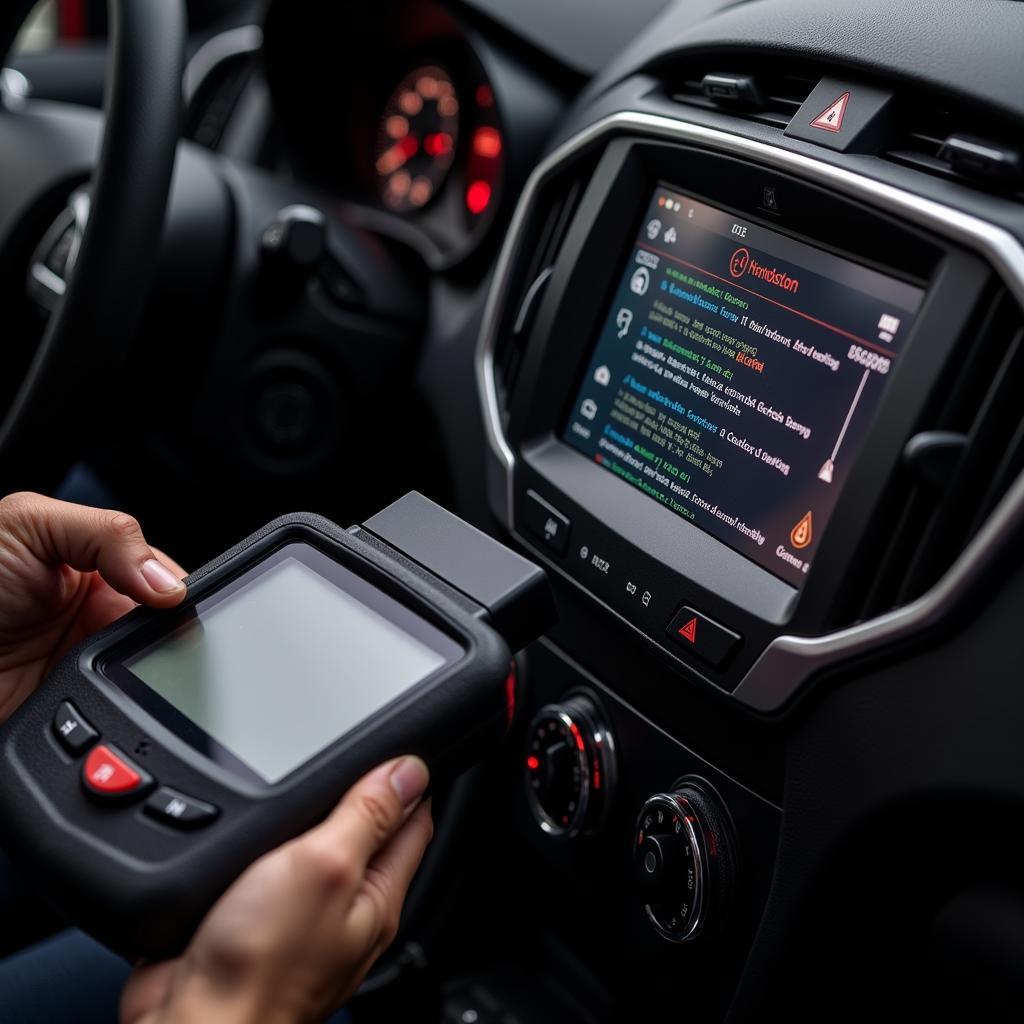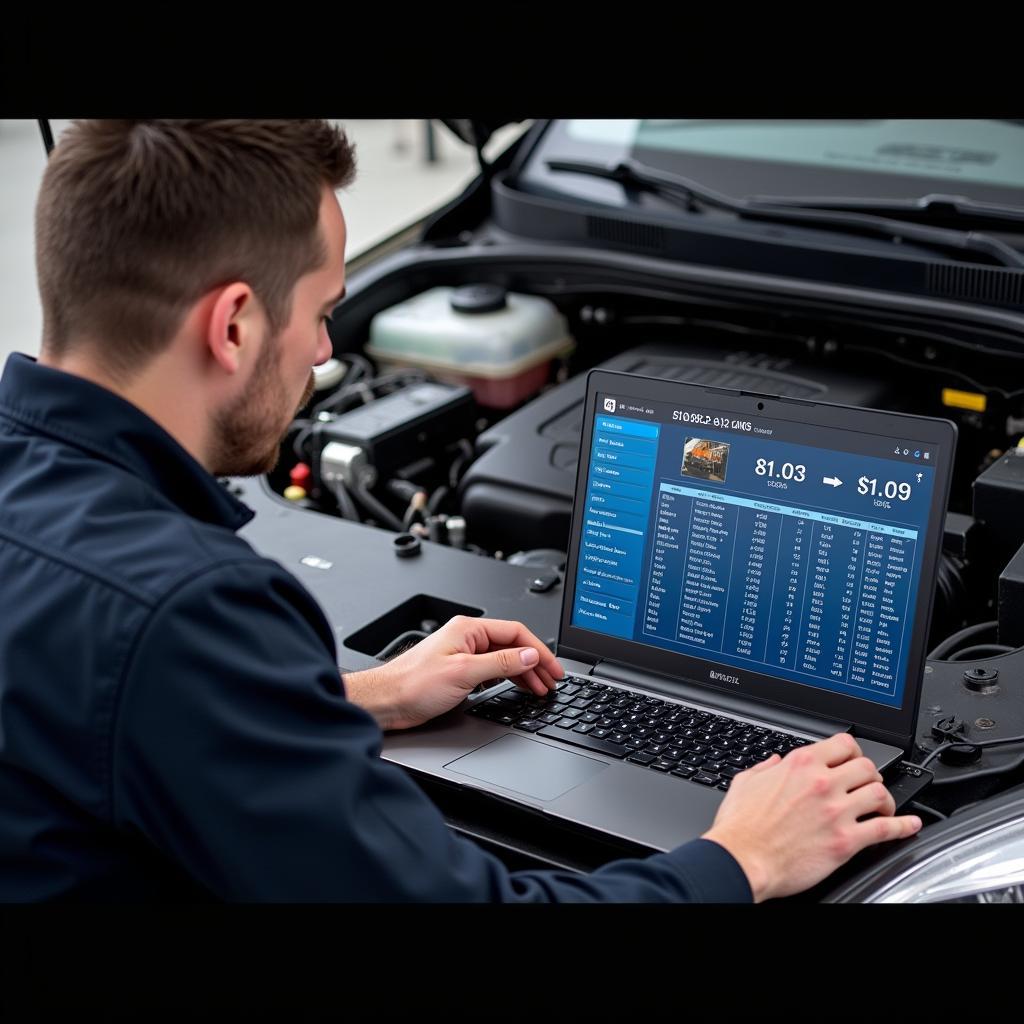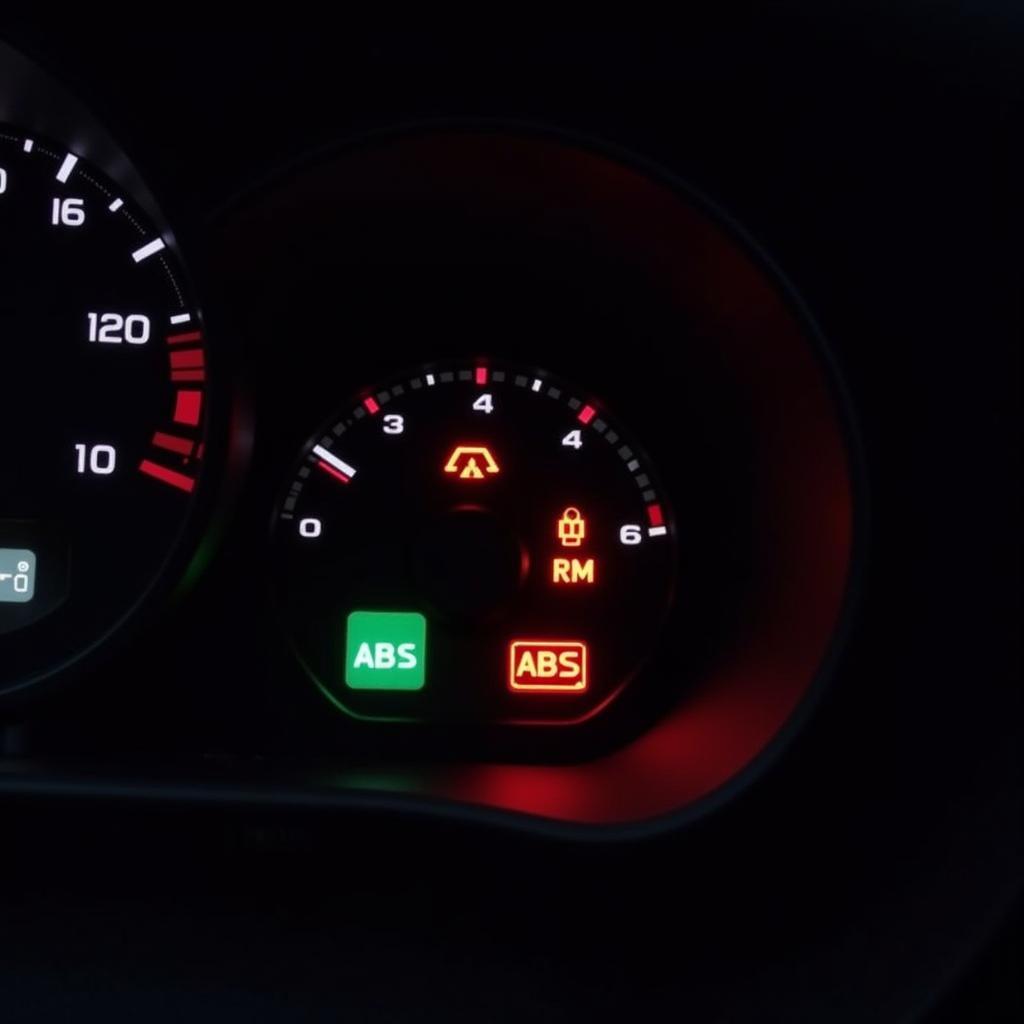A car diagnostic test is an essential part of modern vehicle maintenance. It acts like a health checkup for your car, using a specialized scanner to communicate with your car’s computer system. This process helps identify potential issues and provides valuable insights into your vehicle’s overall performance.
Unveiling the Power of Car Diagnostic Tests
Think of your car’s computer system as its brain, constantly monitoring various components and functions. When something goes wrong, this brain stores a trouble code in its memory. This is where a diagnostic test comes in. By plugging a scan tool into your car’s OBD-II port (usually located under the dashboard), mechanics can read these codes and decipher the issue at hand.
But What Does A Diagnostic Test Do For A Car beyond simply reading codes? Here’s a closer look:
-
Pinpointing Problems: Diagnostic tests can identify issues with the engine, transmission, exhaust system, brakes, airbags, and various other crucial components.
-
Enhanced Accuracy: Unlike traditional inspection methods, diagnostic tests offer a more precise and efficient way to diagnose car problems, saving time and money in the long run.
-
Improved Safety: By detecting issues early on, diagnostic tests can prevent minor problems from escalating into major safety hazards on the road.
 Car Diagnostic Test in Action
Car Diagnostic Test in Action
The Scope of a Car Diagnostic Test
What does a diagnostic car test show? These tests delve into a wide range of systems within your vehicle, providing a comprehensive overview of its health:
-
Engine Performance: Diagnostic tests can reveal issues related to fuel pressure, air intake, ignition timing, and emissions.
-
Transmission Health: They can identify problems with gear shifting, clutch operation, and fluid levels within the transmission system.
-
Exhaust System: Diagnostic tests can detect issues with the catalytic converter, oxygen sensors, and other components, ensuring optimal emissions control.
-
Brake System: The tests can pinpoint problems with ABS, traction control, and other brake-related systems, ensuring safe stopping distances.
-
Airbag System: Diagnostic tests can check the functionality of airbags, seatbelt pretensioners, and impact sensors, crucial for occupant safety.
 Mechanic Analyzing Diagnostic Results
Mechanic Analyzing Diagnostic Results
When Should You Get a Diagnostic Test?
It’s generally recommended to get a diagnostic test during your regular car maintenance schedule. However, certain warning signs indicate the need for an immediate check:
-
Check Engine Light: This is your car’s way of telling you something’s wrong. It could be a minor issue like a loose gas cap or something more serious.
-
Unusual Noises: Strange sounds like knocking, grinding, or squealing coming from your car warrant a diagnostic test.
-
Performance Issues: Experiencing reduced fuel efficiency, rough idling, or difficulty starting your car? A diagnostic test can help.
-
Warning Lights: Besides the check engine light, other warning lights on your dashboard, such as the ABS or airbag light, require immediate attention.
 Car Dashboard Warning Lights
Car Dashboard Warning Lights
Beyond the Basics: The Value of Diagnostic Tests
Understanding “what does a diagnostic test do on a car” goes beyond just fixing current issues. Diagnostic tests offer several long-term benefits:
-
Preventative Maintenance: Early detection of potential problems can save you from expensive repairs down the road.
-
Increased Resale Value: A well-maintained car with a clean diagnostic report holds a higher resale value.
-
Peace of Mind: Regular diagnostic tests provide peace of mind, knowing your car is in optimal condition.
Conclusion
A car diagnostic test is an invaluable tool for modern car owners. By providing a deep dive into your car’s systems, it empowers you to address issues proactively, maintain your vehicle’s health, and ensure a safer driving experience. Don’t underestimate the power of this simple yet crucial procedure.
FAQs about Car Diagnostic Tests
1. How much does a diagnostic test on a car cost?
The cost can vary depending on the location and complexity of the issue, but you can find out more about pricing on our how much diagnostic test on car page.
2. Who does car diagnostic tests?
Mechanics, dealerships, and specialized auto repair shops typically offer car diagnostic services. Learn more about who performs these tests on our who does car diagnostic test page.
3. How long does a diagnostic test for a car take?
The duration varies, but you can expect it to take anywhere from 30 minutes to an hour. For more detailed information, visit our how long does a diagnostic test for a car take page.
4. What is included in a car diagnostic test?
A car diagnostic test typically includes scanning the vehicle’s computer system for trouble codes, analyzing the data, and providing a report outlining the identified issues and potential solutions. To explore the specific details of what a car diagnostic test entails, you can visit our what does a diagnostic test do on a car page.
5. Do I need a diagnostic test if my car is running fine?
Even if your car seems fine, a routine diagnostic test as part of regular maintenance can help catch potential problems early on, preventing bigger issues and saving you money in the long run.
Need more assistance with car diagnostics? Contact us via WhatsApp: +1(641)206-8880, or Email: [email protected]. We offer 24/7 support to answer all your queries.

Leave a Reply